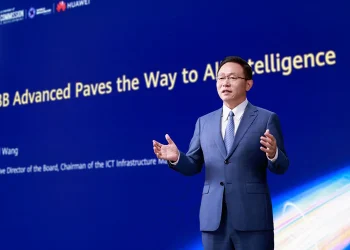Huawei is doubling down on its efforts to build an independent semiconductor supply chain, reportedly investing in over 60 Chinese chip-related companies through its investment arm, Hubble.
This aggressive investment strategy began after the U.S. imposed trade restrictions on Huawei in 2019, cutting off access to critical American technologies. In response, Huawei launched Hubble Technology Investment Co., which has since taken minority stakes—usually below 10%—in a wide array of Chinese firms across the semiconductor ecosystem.
According to Nikkei Asia, Hubble has funneled capital into companies that span the entire chipmaking process, including design, materials, fabrication, and testing. Data verified by Chinese business registry Tianyancha confirms that Hubble now holds equity in more than 50 firms.
Among its notable investments is Suzhou Carbon Semiconductor Technology, which focuses on cutting-edge carbon nanotube wafers that are more efficient than traditional silicon. Another key investment includes Huahai Chengke New Material, a supplier of packaging materials crucial for producing high-bandwidth memory (HBM) used in AI technologies.
Huawei’s ambitions don’t stop at investment. As reported by the Financial Times, the tech giant is also building a 7nm chip manufacturing line in Shenzhen to support its HiSilicon-designed smartphone and AI processors, produced domestically by SMIC and other local foundries.
Despite these forward-thinking moves, rising R&D expenses have taken a financial toll. Nikkei reports that Huawei posted a net loss of 400 million yuan (roughly USD 56 million) in the last quarter of 2024. The company’s annual report also revealed a 28% drop in net profit, attributed mainly to high development costs.
Furthermore, Huawei continues to nurture ties with SiCarrier, a Chinese semiconductor equipment maker reportedly seeking $2.8 billion in fresh funding, according to Reuters. SiCarrier and its parent company have collectively filed 92 patents, including advancements in DUV lithography and multi-patterning—technologies critical to bridging the gap in EUV tools dominated by Western firms.
Huawei’s strategy clearly signals its intent to future-proof its supply chain, aiming to ensure resilience and autonomy amid ongoing geopolitical tensions and global tech restrictions.https://www.youtube.com/watch?v=0IDBa_p8B0Q








